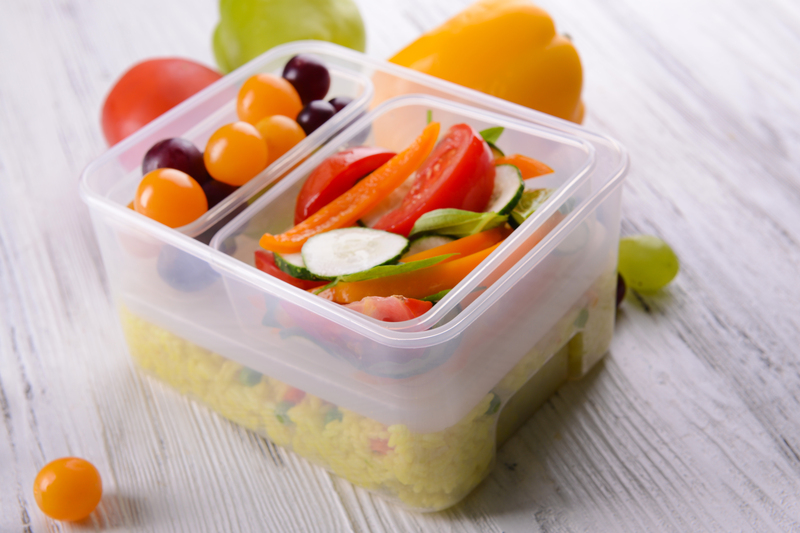Are We Making Strides with Recycling in the UK?
Posted on 24/12/2024
In recent years, there has been an increased focus on environmental issues and sustainability, and recycling has become a significant part of this movement. But are we really making strides with recycling in the UK? Let's take a closer look at the current state of recycling in the country, including its pros and cons, tips for improvement, and some key takeaways.
The Current State of Recycling in the UK
According to a report by the Department for Environment, Food & Rural Affairs (DEFRA), in 2019, the UK recycled 45.5% of its household waste. While this is an improvement from previous years, it still falls short of the European Union's target of recycling 50% of household waste by 2020. Additionally, there are regional disparities within the UK, with some areas achieving high recycling rates while others struggle.
So why are we not meeting our targets? One reason could be confusion or lack of awareness about what can and cannot be recycled. Different local authorities have different rules and regulations for recycling, making it challenging for people to know what they should put in their bins. This leads to contamination of recyclable materials, making them unfit for processing.
Another significant issue is that many items that could be recycled end up in landfills due to improper disposal. For example, plastic bags and packaging can easily get caught in machinery at recycling facilities, causing delays and damages. These items also take hundreds of years to break down in landfills, contributing to pollution and harming wildlife.

Pros of Recycling in the UK
Despite these challenges, there have been notable improvements in recycling practices in the UK over the years. The rise of single-stream recycling has made it easier for people to recycle by allowing all recyclable materials to be placed together in one bin. This has led to increased participation and higher recycling rates.
Recycling also helps reduce our carbon footprint by conserving resources and reducing energy consumption. For instance, recycling one tonne of paper saves 17 trees and uses 70% less energy than producing it from raw materials. Additionally, recycling decreases the amount of waste that ends up in landfills, which emit harmful greenhouse gases.
Cons of Recycling in the UK
While recycling has its benefits, there are also some downsides to consider. One issue is the cost associated with processing recyclable materials. It can be expensive to sort, clean, and process different types of materials, especially if they are contaminated. This cost is often passed on to consumers through higher council tax or waste management fees.
Recycling also has limitations in terms of what can be recycled. For instance, only certain types of plastics can be recycled, and items like paper coffee cups or take-out containers are not always recyclable due to their composition. This means that despite our best efforts, some materials will end up in landfills.
Tips for Improving Recycling in the UK
To continue making strides with recycling in the UK, there are a few key tips that we can follow:
1. Educate Yourself - Make sure you know what can and cannot be recycled in your local area. Check with your local authority or use an online tool like Recycle Now to find out specific guidelines.
2. Rinse Before Recycling - Make sure to rinse any food or liquid residue from bottles and containers before placing them in the recycling bin. This helps prevent contamination and increases the chances of these items being recycled.
3. Reduce Waste - The best way to reduce waste is by reducing our consumption habits. Consider using reusable bags, water bottles, and containers instead of single-use items. This reduces the need for recycling and prevents waste from ending up in landfills.
4. Know Your Labels - Look for labels or symbols on packaging that indicate whether it is recyclable or not. Familiarize yourself with these symbols so you can easily identify recyclable materials.

Takeaways
In conclusion, while we are making strides with recycling in the UK, there is still room for improvement. By educating ourselves, being mindful of what we consume and how we dispose of waste, and supporting measures to improve recycling infrastructure and processes, we can continue to make progress towards a more sustainable future.
Key takeaways include:
1. Recycling has its benefits but also comes with challenges and limitations.
2. To improve recycling rates, individuals can educate themselves, reduce waste, and be mindful of what they consume.
3. Supporting efforts to improve recycling infrastructure and processes can have a significant impact on our overall recycling success as a country.
4. It's crucial to remember that small actions can add up and make a difference in protecting our planet.
In conclusion, while the UK has made some progress with recycling, there is still work to be done. By implementing these tips and being conscious of our actions, we can continue to make strides towards a more sustainable future for generations to come. Let's all do our part in reducing waste and protecting our environment.
Latest Posts
From Eyesore to Masterpiece: When Garbage Becomes Art
Industry welcomes government's move towards increased e-waste recycling

 020 8610 9486
020 8610 9486










